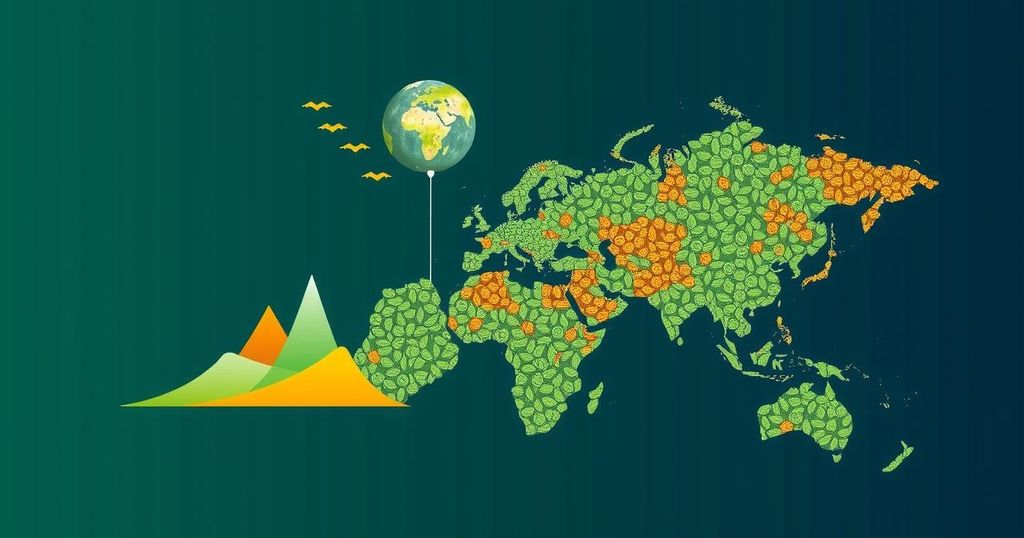COP 29: World Leaders Discuss Trillions in Climate Finance Mobilization
At COP 29 in Baku, leaders are poised to discuss significant contributions to climate finance, with indications of a potential trillion-dollar target. The negotiations not only aim to establish a new collective quantified goal but also address contributor obligations, with submissions from vulnerable nations taken into careful consideration. Decisions made here may lay the groundwork for future financing strategies and action against climate change.
World leaders convened in Baku, Azerbaijan, for COP 29 on Climate Change, with the conference nearing its conclusion. Anticipation surrounds discussions focused on climate finance, with a recent United Nations document suggesting progress towards mobilizing trillions of dollars. This potential figure has been met with approval from experts who argue that billions would be inadequate to address the immediacy of climate issues. Throughout COP 29, extensive deliberations, including 12 technical consultations, have led to the drafting of critical financial guidelines that may culminate in a new collective quantified goal (NCQG).
A pertinent question discussed at COP 29 centers on the appropriate financial target for climate action. The released draft indicates that the new target is likely to be expressed in trillions of dollars, even though a specific figure remains undisclosed. Critical consensus on this target is deemed essential for effective mobilization of funds and addressing climate change urgently. Past commitments, such as the pledge of $100 billion per year from developed to developing nations initiated during COP Copenhagen in 2009, cast a shadow on the validity of previous commitments. Views vary on whether that target was actually met, complicating the current financial negotiations.
Crucially, discussions have also addressed the contributor base and obligations related to climate financing. Proposed suggestions to broaden the contributor base to include nations like China and India faced strong opposition from those nations and experts, showcasing potential challenges in negotiations. The latest drafts emphasize voluntary contributions from developing countries rather than mandatory obligations, allowing more flexibility in participation. The draft mandates minimum financial allocations for least developed and small island developing countries, marking a significant step in addressing the financial needs of the world’s most vulnerable regions.
Additionally, the scope of eligible financing sources has emerged as a key issue. Various stakeholders have called for increased private sector involvement in climate finance, while some questioned whether such involvement could be mandated. The decisions reached affirm that the new climate finance goal will derive from a blend of public, private, and alternative funding sources, acknowledging the pivotal role of public resources. Furthermore, allocations toward grants are being prioritized over loans to alleviate the debt burdens of developing nations. Overall, the decisions proposed during COP 29 may not only enhance financial availability for climate action but also foster trust in the international multilateral process among susceptible nations.
Contributions from experts, such as Illari Aragon, emphasize the importance of effective climate finance discussions and the necessity to meet the pressing challenges posed by climate change.
The ongoing COP 29 conference in Baku serves as a platform for global leaders to address urgent climate finance issues. The need for substantial funding to combat climate change has never been more pressing; thus, discussions aim to establish a new collective quantified financial goal (NCQG). Past experiences and established commitments underscore the challenges ahead in meeting these financial targets, particularly for developing nations that are disproportionately affected by climate changes. The outcomes of COP 29 will significantly influence future international climate action and funding strategies, as leaders navigate complex negotiations involving various stakeholder contributions.
In summary, the discussions at COP 29 reflect a decisive shift towards mobilizing trillions of dollars for climate finance, a crucial step given the inadequacy of previous financial commitments. The ongoing negotiations surrounding contributor obligations and the effectiveness of funding sources indicate a broadened perspective on climate financing. By establishing minimum allocation standards for vulnerable countries and prioritizing grants over loans, COP 29 aims to provide substantial momentum for addressing climate change while fostering trust in multilateral efforts.
Original Source: www.forbes.com




Post Comment